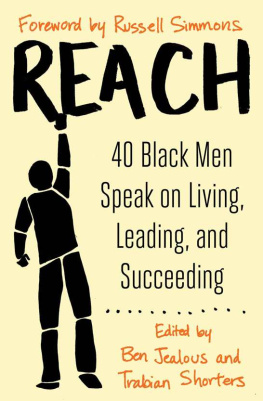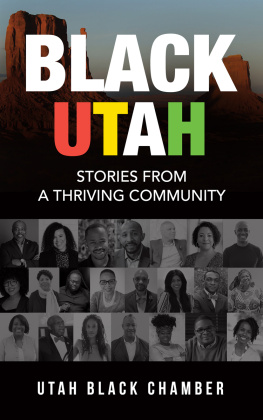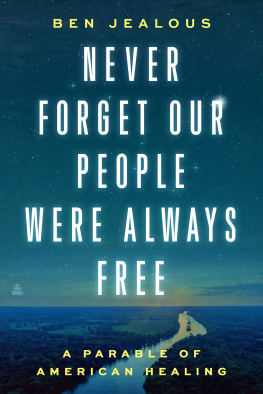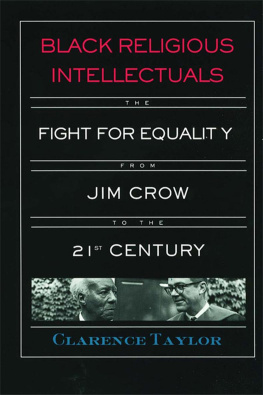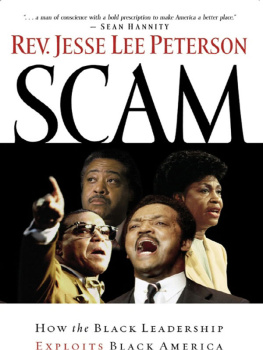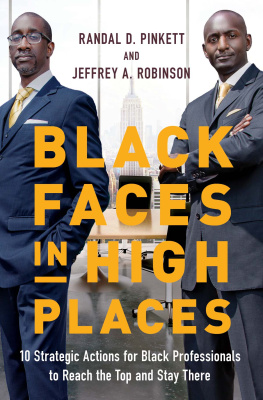Thank you for downloading this Atria Books eBook.
Join our mailing list and get updates on new releases, deals, bonus content and other great books from Atria Books and Simon & Schuster. CLICK HERE TO SIGN UP or visit us online to sign up at
eBookNews.SimonandSchuster.com

CONTENTS
BEN:
To my children, Jack and Morgan, and my nieces and nephews Nina, Dylan, Emma, Tristan, and DeJuan.
TRABIAN:
To my grandfather Kennis Hutchons, whose love made me want to honor men like him, and to his wife, Irma Lee Hutchons, whose love transformed my grandfathers life.
Special thanks go out to Nicole Levey, Kweli Washington, and Ben Wrobel for their tireless dedication and commitment to this project.
FOREWORD
Russell Simmons
W e lived for that loud, ghetto, b-boy hip-hop. For Run-DMC, that was our only real inspiration. We hated disco and R&B. We were rock n roll from day one. When we made beats we would sample from artists like Billy Squier and Aerosmith. Sometimes it was jazz artists like Bob James who influenced us, but it was mainly rock n roll. We were loud and abrasive, and rock n roll had the beat. Most folks didnt see us as rock n roll (shame on the gatekeepers), but progressive critics recognized our sound. From Jam Master Jay and Sucker MCs to Raising Hell and Tougher Than Leather , we were always hard, rebellious spirits.
The funny thing is that back then, black people didnt seem to like rap music. They rejected it at first. It was actually the white press that made us popular. The first time I heard my record on the radio was in Europe, in Amsterdam. In fact, if it wasnt for a white, British A&R director in 1979, who believed in our music, we may never have been able to take over the world.
Although our style of music was first embraced by white audiences, dont think that I ever forgot what its like to be a black man in America. No matter what industry I was breaking down the doors of, I was constantly reminded of the color of my skin. I still am. Im aware that, for black men today, racism is still an obstacle that causes tremendous anger and suffering. Our communities are still recovering from years of soul-destroying policies and programs. And recently there have been undeniable roadblocks placed in our path toward greater freedom and prosperity. Whether its the kind of racially charged violence that led to the deaths of Trayvon Martin, Mike Brown, Jordan Davis, and countless other black, unarmed young men; or the predatory mortgages that invaded our neighborhoods, which also helped bring our economy to the worst economic recession our generation has ever known; or the high unemployment rate that continues to devastate our communities; or the continuation of Americas obsession with warehousing millions of us in prisons and jails across the countryour people have been hit hard.
There are times when it seems that we have been beat over the head with a baseball bat, over and over again. But, somehow, some way, we are able to get back up. We are able to stand back up on our own two feet and try again to climb to the top of the mountain. This has been the story of our people, the story of black people, the story of black men. This has been my story.
Our ancestors survived the slave fields and somehow persevered. And they not only passed on these two necessary skillssurvival and perseveranceto the generations of black people that followed, they also taught us ingenuity. With very little they were able to continue living through brutal and harsh conditions. Since slavery, the conditions have certainly gotten better, but for many of us, we still struggle to survive. If I hadnt remembered the lessons of our ancestors during my own struggle, that essentially I could not fail until I quit, I know I would have not gotten to this point in my life. I definitely would not have been asked to write the foreword to this book from my dear friend Ben Jealous. I might not have even made it out of Hollis, Queens. I might have given up because I thought it would be too hard to overcome the obstacles in my path.
Instead, Im reminded of a mantra that those who practice yoga constantly repeat: Smile and breathe in every pose, no matter how difficult or painful the pose might be in that moment. No matter how great the challenge is, you must breathe deep and keep pushing through. That is what the great men in this book have done during the course of their lifetimes. That is what Ben Jealous has done. Never have any of us taken the easy route, as the easy route didnt even exist on our map.
As I reflect back, I certainly could have let those who judged me by the color of my skin decide how my life would turn out. But instead I decided to challenge every norm that society had to offer. First I put rock n roll on rap albums. Then I put the logos of black fashion designers on shirts worn by kids of all races all across the world. I made late-night HBO a place where great black comedians had the chance to make you laugh no matter the color of your skin. I created a financial services industry that provided access to the American Dream for millions of unbanked people in the United States. And finally, in my latest Hollywood adventure, I am uplifting talented folks in our communities so that they get a fair shot at having their stories heard.
This is my rhythma loud drumbeat that contains a brighter outlook and a stronger purpose for us black men. A song we can all sing with a beat that raises hell and is always tougher than leather .
INTRODUCTION
Ben Jealous
I was blessed to grow up in a home where stories of great black men and women were served up as frequently as spoon bread and fried apples.
My grandmother told and retold stories of ancestors who had been born slaves and went on to found universities and banks and become statesmen during Reconstruction. My grandfather maintained an informal basement bar where I spent valuable evenings and weekend afternoons listening to his friends, all of whom were born into segregation but rose up above the walls of limitation. My parents told me bedtime tales about their experiences fighting Jim Crow with the Student Nonviolent Coordinating Committee (SNCC), the Congress of Racial Equality (CORE), and the National Association for the Advancement of Colored People (NAACP).
Together, these stories inspired me to dream big dreams of helping to increase opportunity for all people. Perhaps even more importantly, they instilled in me the habit of seeking out the stories of others. Their stories and the dreams they inspired started me on my own path toward leadership.
Since the beginning of time, imitation has always been the first step for those who achieve great things. Children pick up sticks to reenact the battles of great soldiers. Toddlers preach to congregations of teddy bears and puppets. Babies step into their parents shoes and try to walk. However, heres the rub: each of us can only imitate what we know. We cannot imitate that which we have never seen, heard, or read about.
Despite the rapid advances of technology, young men of color today often lack access to positive images and stories about others who look like them. With the exception of stories about one black man who lives at 1600 Pennsylvania Avenue, the reporting we see about men of color on the nightly news often leaves little good to imitate.
Occasionally, the images of our greatest heroes do break through. Black-and-white film reels of Martin Luther King Jr. and Thurgood Marshall flicker in classrooms on rainy days across the country. However, the grainy images place these icons in another era, in a time when the battles seemed perhaps simpler, the outcomes predetermined. Their lives are remembered in a way that makes them so flawless, so impossibly angelic, that their stories and achievements seem unattainable.
Next page
